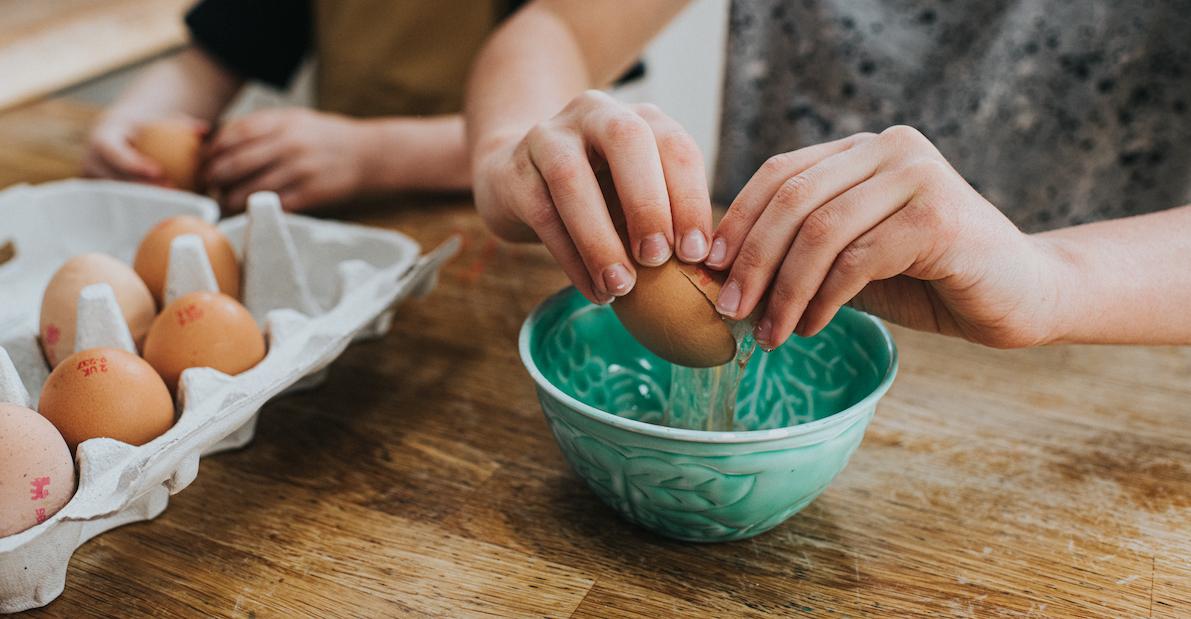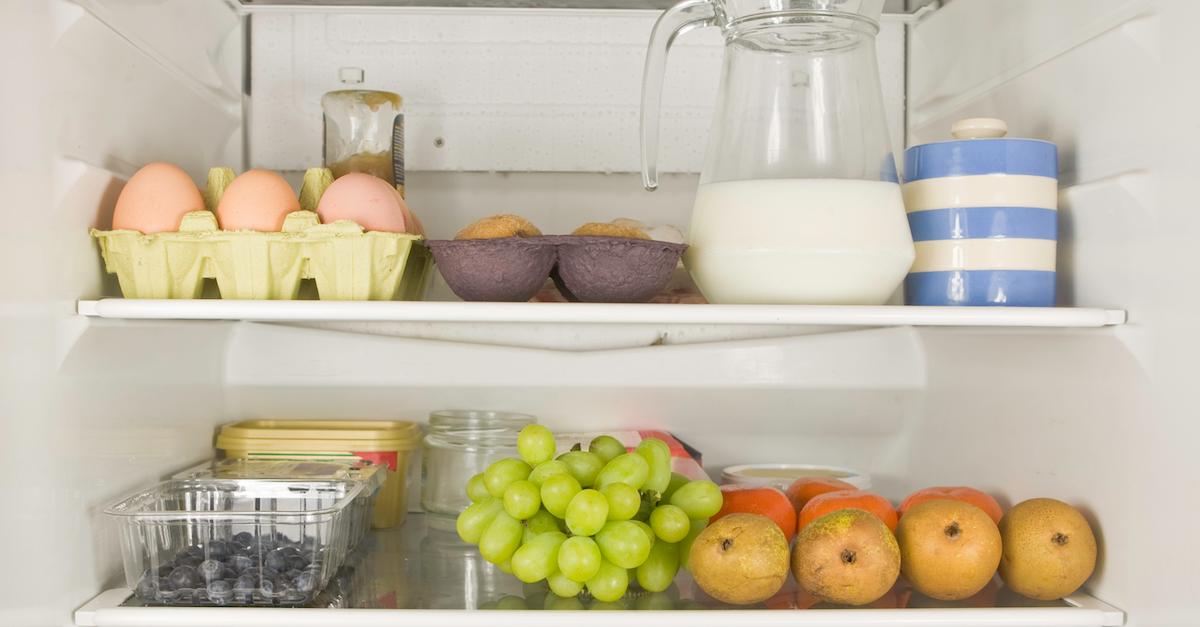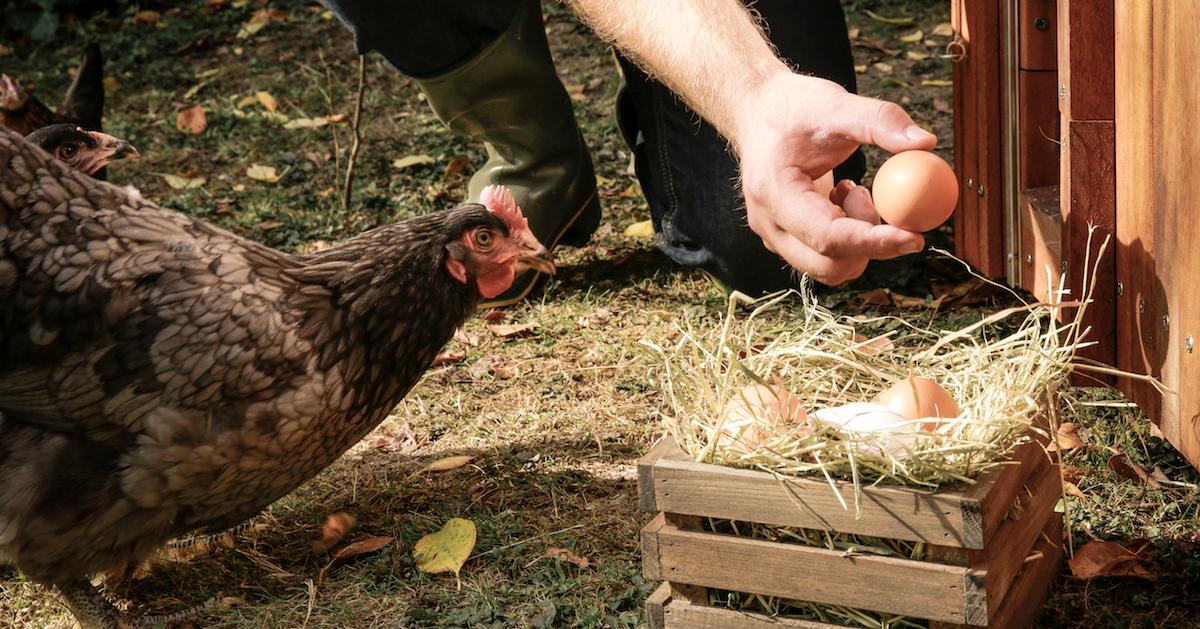How Long Do Eggs Last?
Updated Dec. 4 2020, 9:36 a.m. ET

Eggs haven’t always had such a great reputation. Their journey has been a mercurial one, having been considered both good and bad for us at various points throughout modern history. They even have a pretty long shelf life, considering. But how long do eggs last, especially if they’re farm fresh or organic?

Are eggs considered vegan?
Unfortunately, the eggs you find in the grocery store are animal products and are therefore not vegan. Fortunately, there are plenty of plant-based egg alternatives out there these days. Nevertheless, vegetarians and flexitarians can feel free to enjoy eggs now and again. One large egg contains 6.3 grams of protein and 13 essential vitamins.
How long do eggs last?
Eggs are sold fresh, and like many fresh, non-processed foods, they need to be refrigerated in order to stay fresh. This especially true if they are pasteurized. However, if you live alone, in a smaller household, or if you just don’t use eggs that much, you might find that even a single carton of eggs can sit in our fridge for quite a while. In this case, it’s hard to determine how long your eggs will actually last in the fridge.
Regardless of the date printed on the egg carton, the Food and Drug Administration (FDA) recommends storing your eggs at 40 degrees Fahrenheit or below in order to keep them fresh. The FDA also advises using your eggs within three weeks of purchase. This recommendation is slightly hampered by the fact that the Egg Safety Center, who claims that you can still eat eggs four to five weeks past their packing date.

Do cooked eggs last longer than fresh?
According to the FDA, cooked eggs can last in the fridge for about three or four days. The same is true for eggs mixed into a dish of leftovers. Hard-boiled eggs, however, can last a bit longer, about a week. You can also freeze cooked eggs in something like a breakfast burrito or breakfast muffin.
How can you tell if an egg is still good?
When in doubt, always trust your senses. If the egg smells bad either in or out of the shell, toss it. Our sense of smell isn’t as great as, say, a dog’s, but it’s good enough to discern rotten food. Rancid eggs have a pretty offensive odor too, so there's not much margin for error there. Also, if a shell is cracked, throw out the egg. Chances are good that bacteria or mold has already wormed its way inside.
What's the best way to store my eggs?
Eggs should be stored on the middle shelf, towards the back of the fridge — not in the door as they are in cartoon or sitcom fridges. The closer they are to the door, the more the eggs are subject to varying degrees of temperature. As soon as the temperature rises to 41 degrees Fahrenheit, bacteria can begin to grow on animal products and cause all sorts of issues, according to the USDA.

Can older eggs make you sick?
The bacteria that cause food poisonings like Salmonella and E. coli often build up over time, even in food that has been refrigerated. So, even if the eggs look and smell good, it’s probably best to split the difference and not let them go any longer than a month in the fridge. Eggs can also be frozen for up to a year, but only if they are removed from the shells first. Just mix yolks and whites together and pop them in a freezer-safe container.
According to the CDC, Salmonella infections can cause diarrhea, fever, and stomach cramps. These symptoms usually begin six hours to six days after the initial infection and can last four to seven days. Note that in some rare cases, people don’t get symptoms for several weeks after eating the affected food.
Do organic eggs last longer than pasteurized?
According to Homestead and Hill, fresh, unwashed eggs and organic eggs do not need to be refrigerated for several weeks after purchasing. The reason they last longer is due to a sort of bacteria film that comes out when the hen first lays the egg. Still, note that even if they don’t need to be refrigerated, both washed and unwashed eggs will maintain a higher quality when stored in the refrigerator.